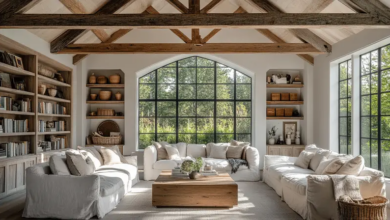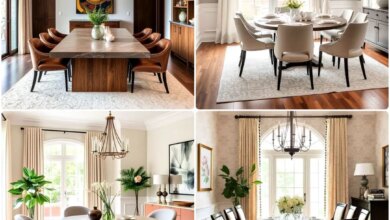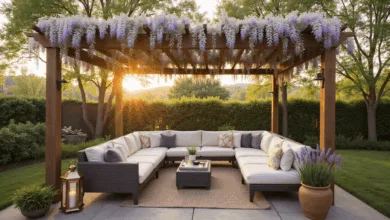22 Brilliant Kitchen Bar Ideas That Perfectly Combine Style and Practicality
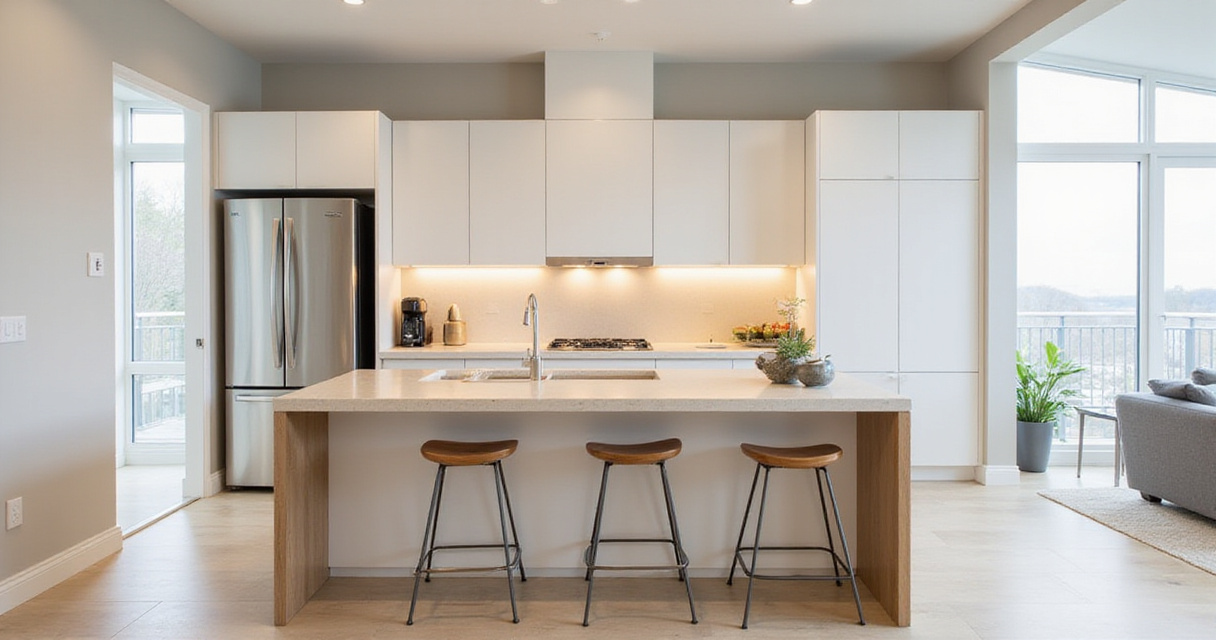
Today’s kitchen transcends its traditional role as a cooking area, emerging as the vibrant digital nucleus of the home. It’s a place where meals are crafted, stories are shared, and increasingly, where technology and daily routines intersect. Designing a kitchen bar thoughtfully bridges the gap between classic social spaces and the demands of modern, connected living.
Incorporating a kitchen bar reshapes not only the utility of your kitchen but also its ambiance. Whether you’re tackling remote work, grabbing a quick bite, or entertaining guests, a versatile bar area adapts fluidly to your lifestyle. Drawing from my expertise in harmonizing timeless design with contemporary needs, I’ve curated 22 innovative kitchen bar concepts that marry elegance with practicality for today’s tech-savvy households.
These designs excel by respecting spatial limitations while enhancing usability-a philosophy rooted in both minimalist aesthetics and traditional Japanese spatial efficiency. Let’s delve into how to craft a kitchen bar that functions as both a social hub and a digital command center.
1. Extending Your Island: The Timeless Bar Counter
One of the most straightforward ways to add a kitchen bar is by elongating your existing island countertop beyond its cabinetry. This minimalist extension creates a natural ledge for seating without the need for major remodeling. Its charm lies in maintaining a seamless visual flow while clearly designating a communal area.
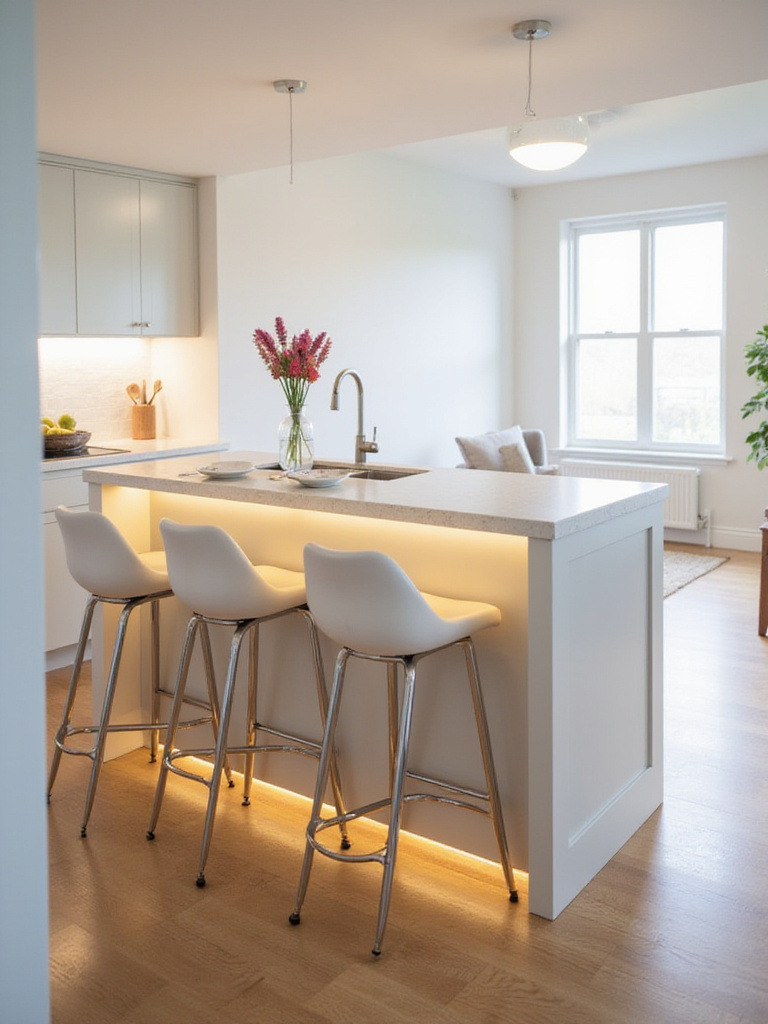
In my projects, this design proves ideal for tech-integrated kitchens. The extended surface comfortably accommodates dining and digital devices alike, while the open space underneath facilitates discreet cable routing and ergonomic seating. Adding subtle under-counter LED lighting enhances evening ambiance, perfect for both meals and remote work sessions.
Notice how the interplay of materials creates a floating effect, embodying principles of lightness and spatial harmony reminiscent of zen design.
2. Fold-Down Wall Bar: Maximizing Compact Kitchens
When space is at a premium, a fold-down wall-mounted bar offers exceptional adaptability. Inspired by the Japanese ethos of multifunctionality, this design remains unobtrusive when folded and instantly transforms into a practical surface when needed.
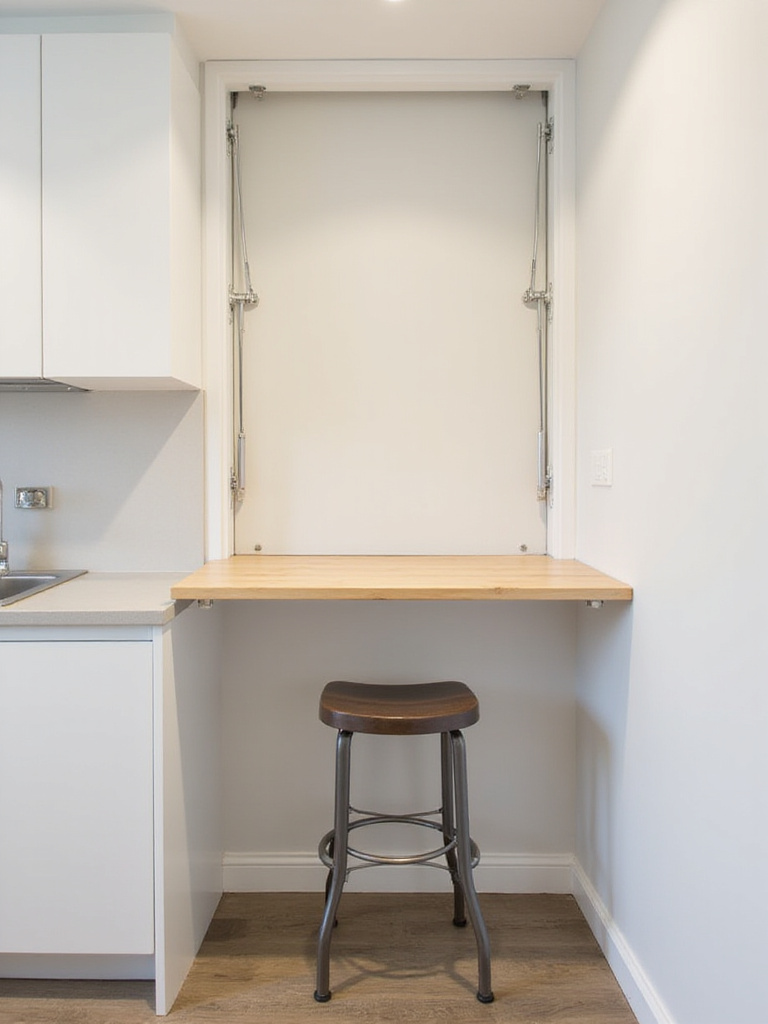
These bars can be installed at various heights-counter level for meal prep, desk height for work, or bar height for casual dining. Many modern models integrate cable management and wireless charging pads, catering to the constant need to power devices. Their sleek, transformative nature makes them perfect for apartments or as secondary workstations.
Besides saving space, this design reduces the environmental footprint by minimizing the need for additional furniture.
3. Peninsula Bar: A Seamless Social Divider
The peninsula bar offers a subtle partition between cooking and social zones without obstructing light or conversation. Unlike standalone islands, peninsulas attach to cabinetry or walls, forming efficient “U” or “G” shaped layouts that optimize both workflow and interaction.
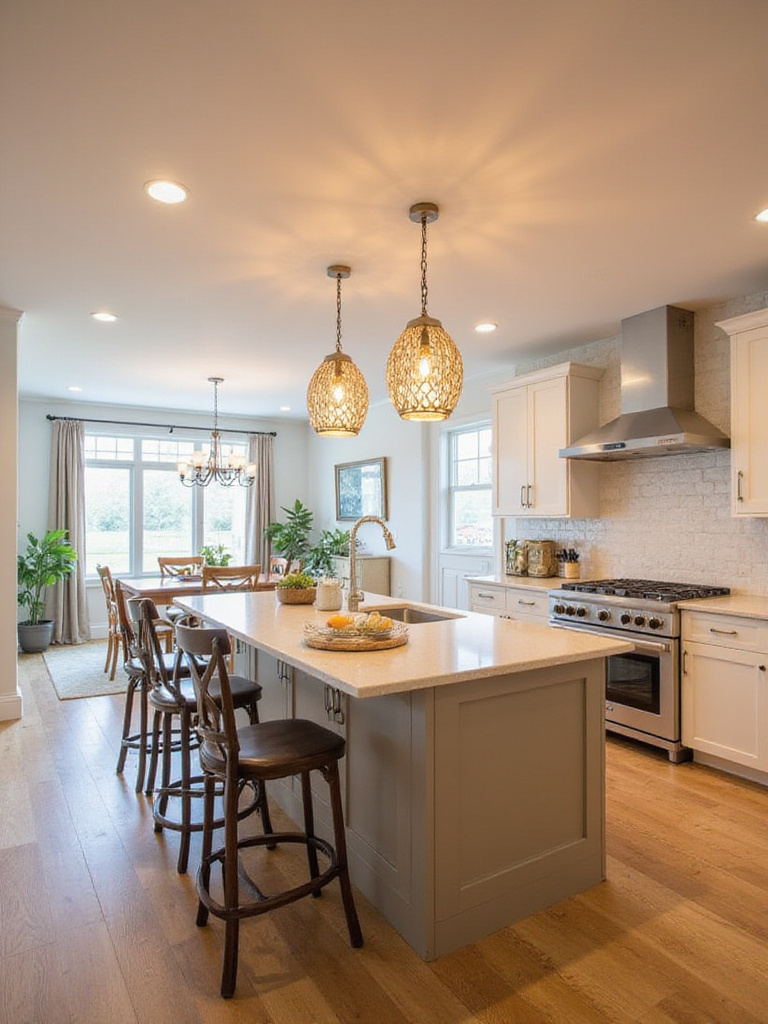
The extended countertop side naturally invites gathering while keeping the cook engaged with guests. This layout shines in open-plan homes, where the kitchen flows into living areas. Strategically placed outlets and charging stations transform the peninsula into a digital hub for culinary and tech activities.
Don’t overlook lighting-pendant fixtures above the peninsula not only brighten tasks but also visually anchor the space.
4. Butcher Block Bar Tops: Inviting Warmth and Texture
Butcher block countertops infuse warmth and tactile richness into kitchens often dominated by cold, hard surfaces. Crafted from joined wood strips, they showcase natural grain patterns that invite touch and add visual depth.
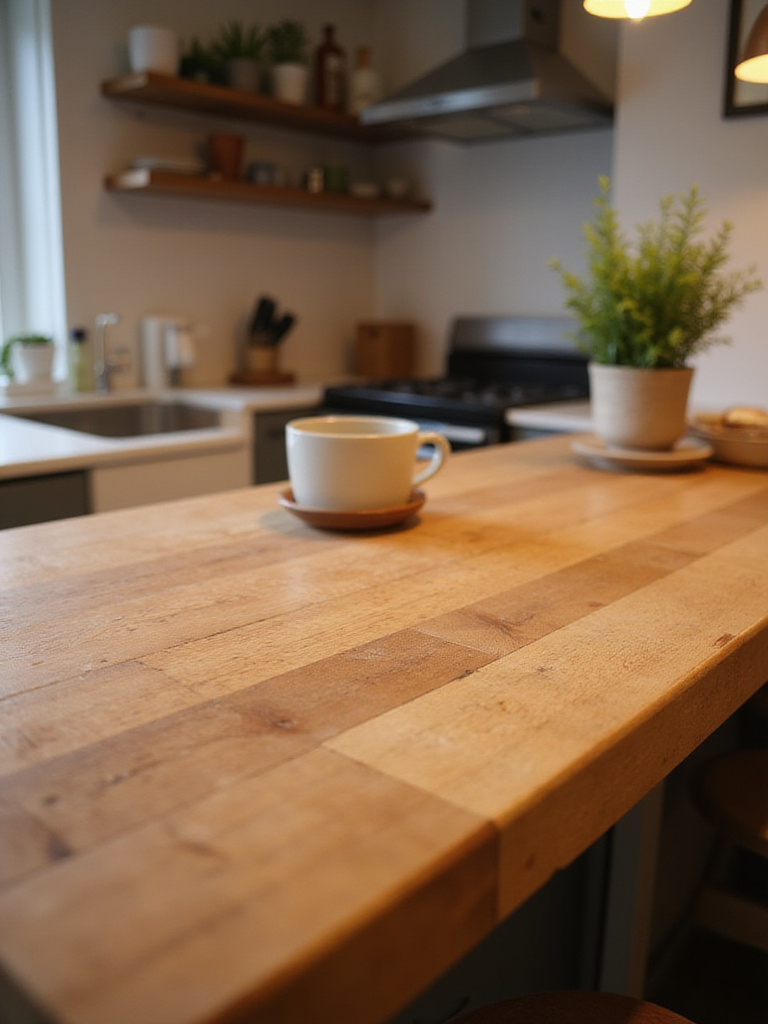
Beyond aesthetics, butcher block surfaces are naturally antibacterial when maintained properly, gentle on glassware, and absorb sound, fostering a quieter environment. Many homeowners cherish how these surfaces develop a unique patina over time, reflecting the life of the kitchen.
End-grain construction highlights wood’s growth rings and enhances durability, making butcher block a practical and beautiful choice.
5. Concrete Counter Bars: Industrial Elegance Meets Function
Concrete has shed its industrial-only image to become a chic, customizable material for kitchen bars. Its raw, mineral texture grounds the space amid digital devices, while its adaptability allows for bespoke shapes, colors, and embedded features.
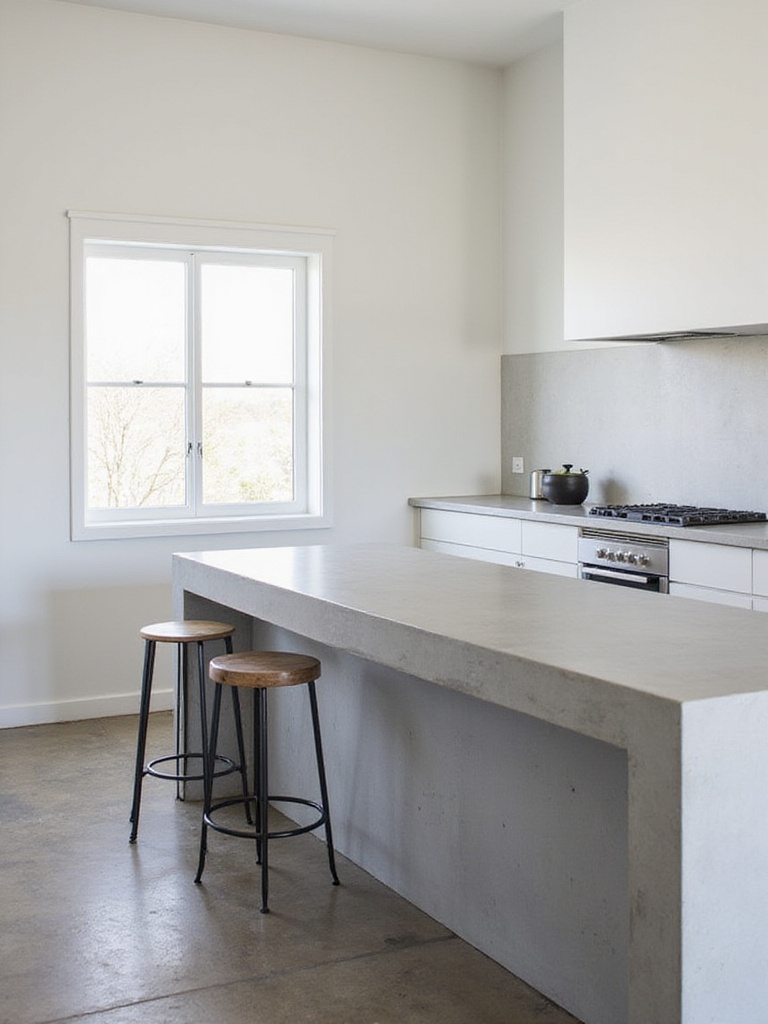
Concrete’s thermal mass keeps it cool to the touch, a refreshing contrast in warm kitchens. Modern sealants prevent staining and porosity, making it both practical and stylish. For tech integration, concrete bars can include embedded wireless charging pads or custom cutouts for power outlets, blending material solidity with digital convenience.
This design reflects a modern reinterpretation of honest materials and structural clarity.
6. Reclaimed Wood Bars: Sustainability with Character
Using reclaimed wood for kitchen bars adds a layer of history and personality that new materials can’t replicate. Each plank tells a story through its weathering, nail holes, and saw marks, creating a rich, textured surface.
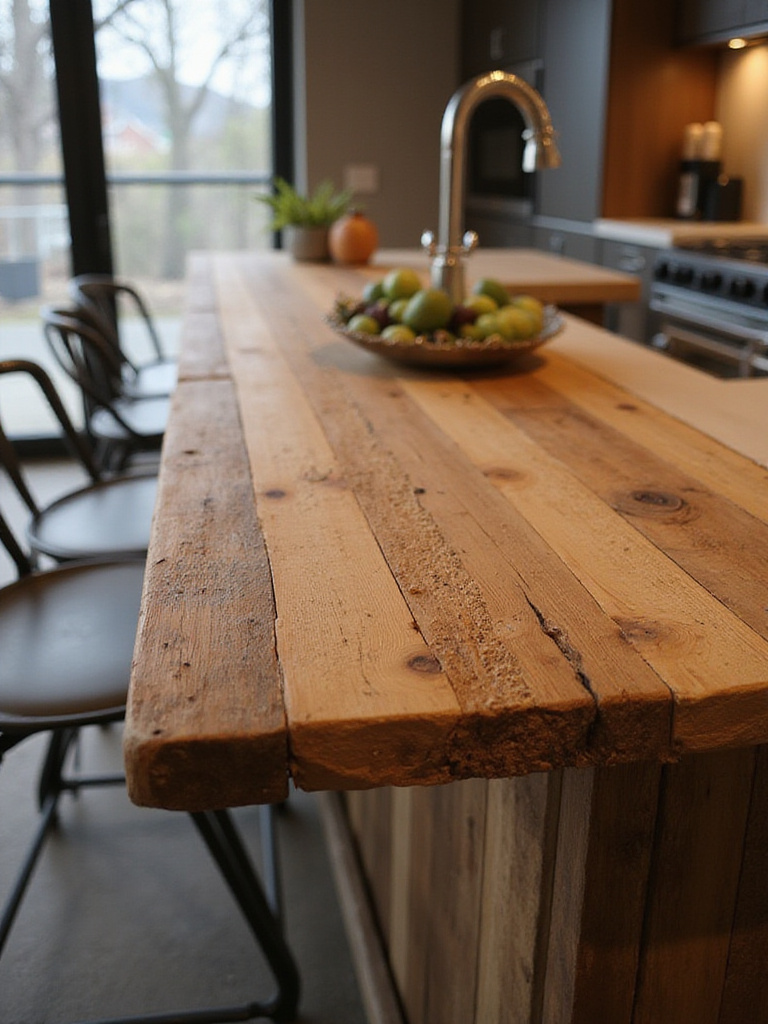
Each reclaimed wood bar is unique, with natural variations that evolve with use. This approach supports environmental responsibility by repurposing materials that might otherwise be discarded, while honoring traditional craftsmanship.
7. Waterfall Edge Bars: Sculptural Simplicity
The waterfall edge design extends countertop material vertically down the sides, creating a seamless, sculptural effect. This continuous flow reduces visual clutter and aligns with minimalist aesthetics.
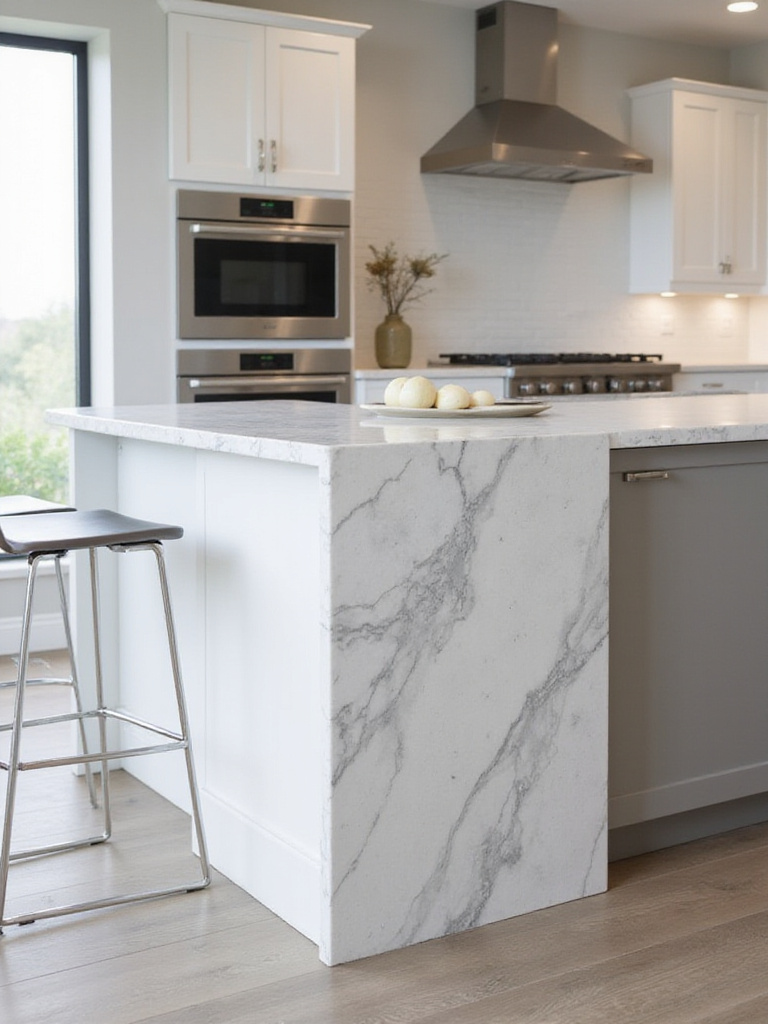
The vertical surfaces can house integrated features like touch controls or subtle LED indicators. Though requiring precise craftsmanship, the result is a timeless, cohesive look that also protects cabinetry edges in busy kitchens.
8. Dedicated Wine Bar Integration
Incorporating a wine bar section within your kitchen bar honors the ritual of wine selection and serving. Dedicated storage-racks, refrigeration, or display shelving-adds both function and visual interest.
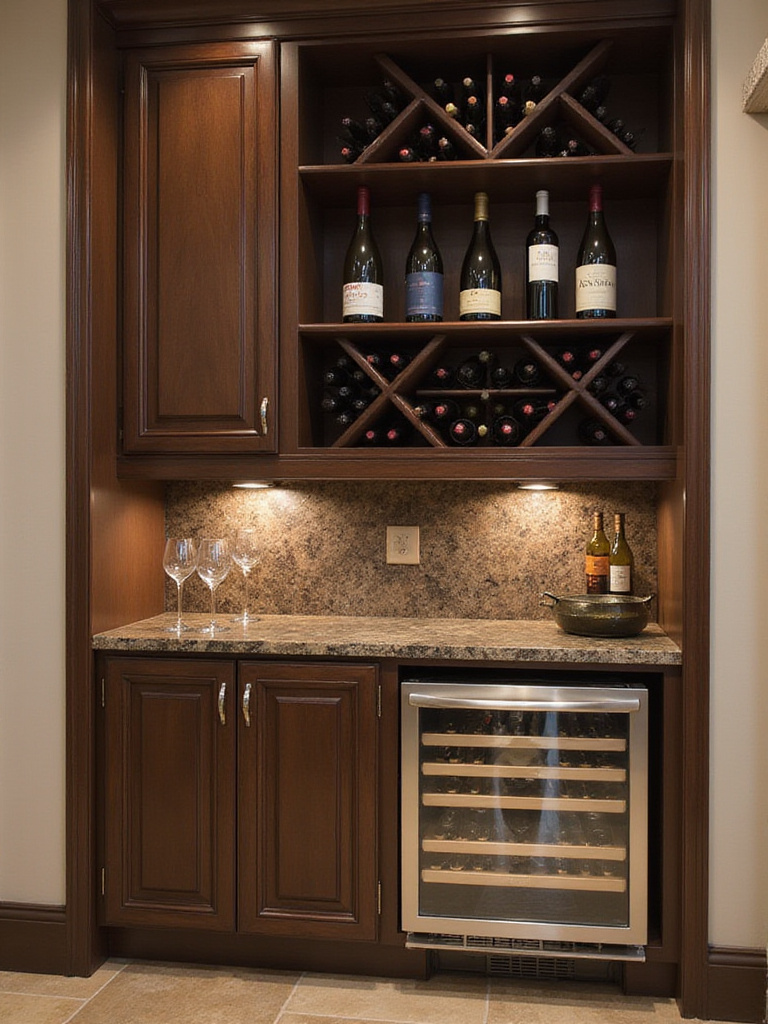
Modern wine storage often includes digital climate controls with smartphone connectivity, blending tradition with technology. Thoughtful lighting-such as heat-free LED strips-can highlight your collection, making the wine bar a captivating focal point.
9. Smart Storage Solutions Beneath the Bar
Integrating storage under the bar overhang transforms the space into a highly efficient workstation. Cabinets, drawers, or open shelves accessible from multiple sides keep essentials within reach and reduce clutter.
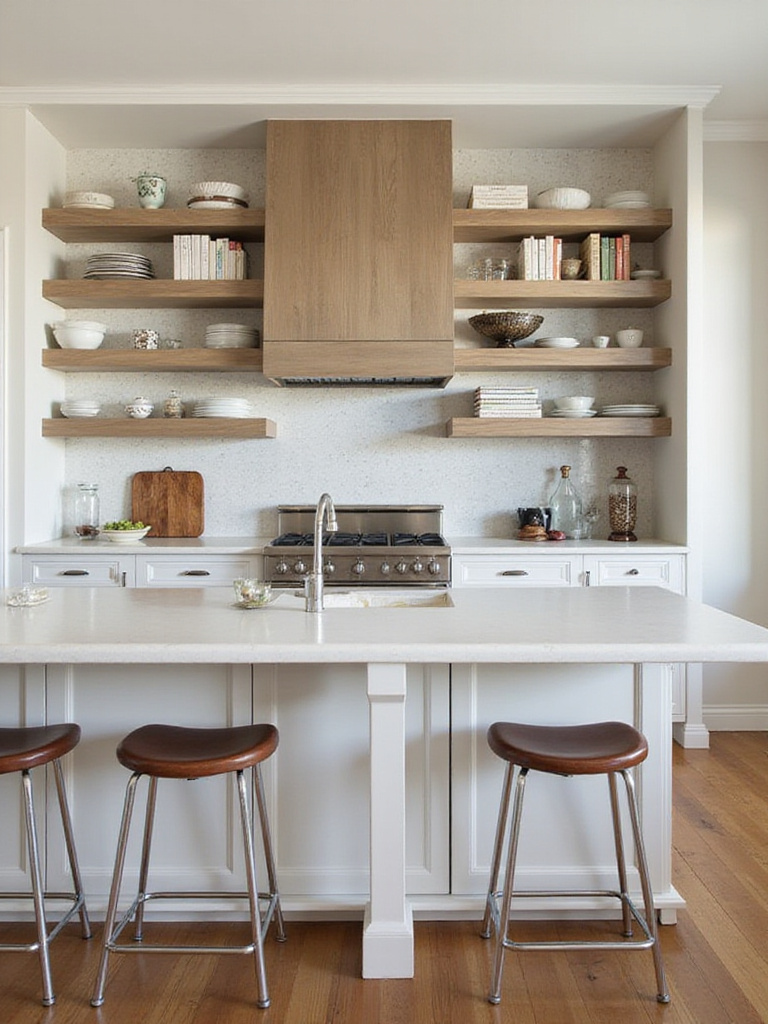
Design storage tailored to your activities-charging drawers with power outlets for digital devices, glassware compartments for entertaining, or multi-use spaces for homework and dining. Built-in storage also simplifies cleaning by eliminating open floor space beneath seating.
10. Multi-Level Bars: Catering to Diverse Needs
Multi-tiered kitchen bars feature distinct heights-typically a 36″ counter-height section and a 42″ bar-height area-creating zones for different tasks without physical separation.
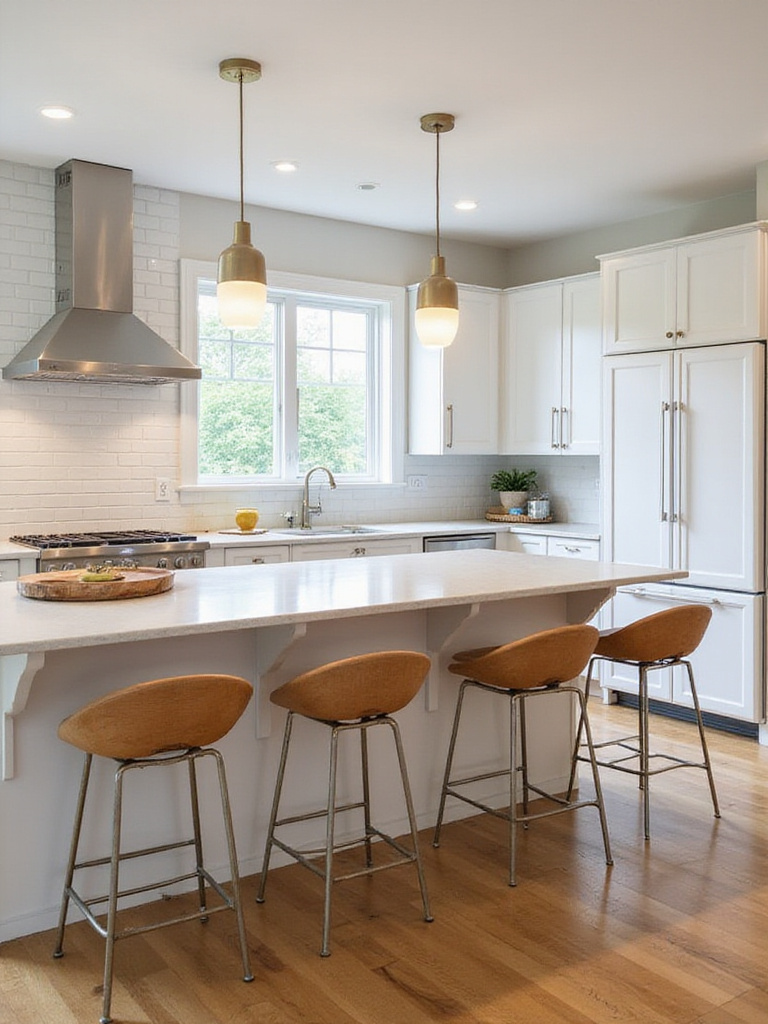
The lower level suits food prep, baking, or seated laptop work, while the raised section is perfect for casual dining or standing conversations. This design supports simultaneous activities, enhancing kitchen functionality and social interaction.
11. Compact Bars for Limited Spaces
Small kitchens can still benefit from a functional bar through clever, space-saving designs like narrow ledges, slim peninsulas, or fold-away surfaces. These minimalist solutions prioritize essential functions over size.
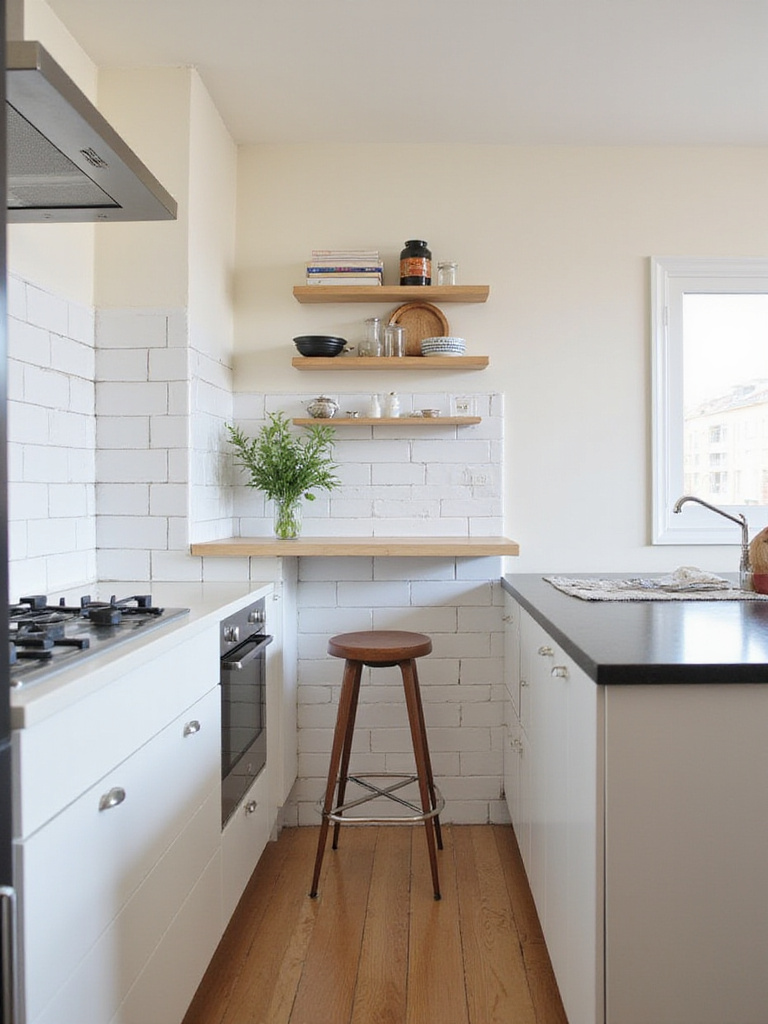
Choosing rounded or floating designs can enhance openness and safety, while wall-mounted options free up floor space entirely. The key is matching the bar’s scale to its intended use for a seamless fit.
12. Mobile Kitchen Bar Carts: Flexibility on Wheels
Bar carts on casters offer unmatched adaptability, allowing you to reposition your bar as needed. This is especially useful in multifunctional kitchens or for dynamic entertaining setups.
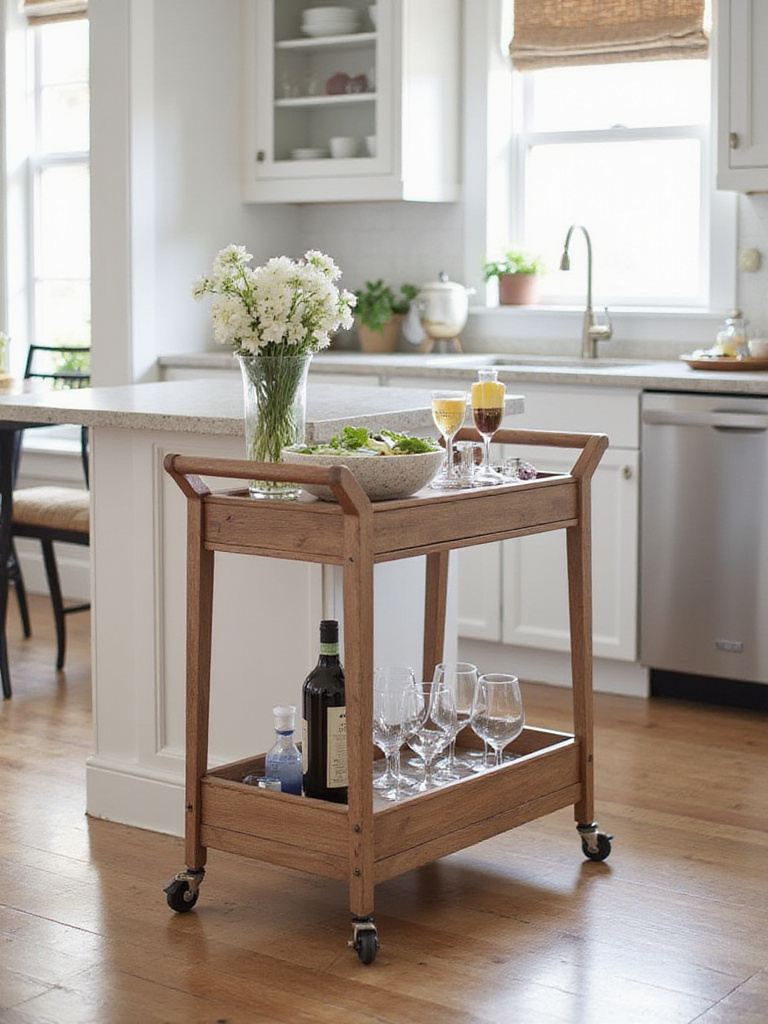
Modern carts often feature butcher block tops, built-in cutting boards, knife storage, and tech-friendly additions like tablet holders or Bluetooth speakers. Their mobility lets you follow natural light or access power outlets easily, making them ideal for renters or those who frequently rearrange their space.
13. Window-Facing Bars: Bringing the Outdoors In
Placing a kitchen bar along a window transforms it into a serene spot that connects indoor tasks with outdoor views. Natural light enhances the workspace, while changing scenery adds a dynamic backdrop.
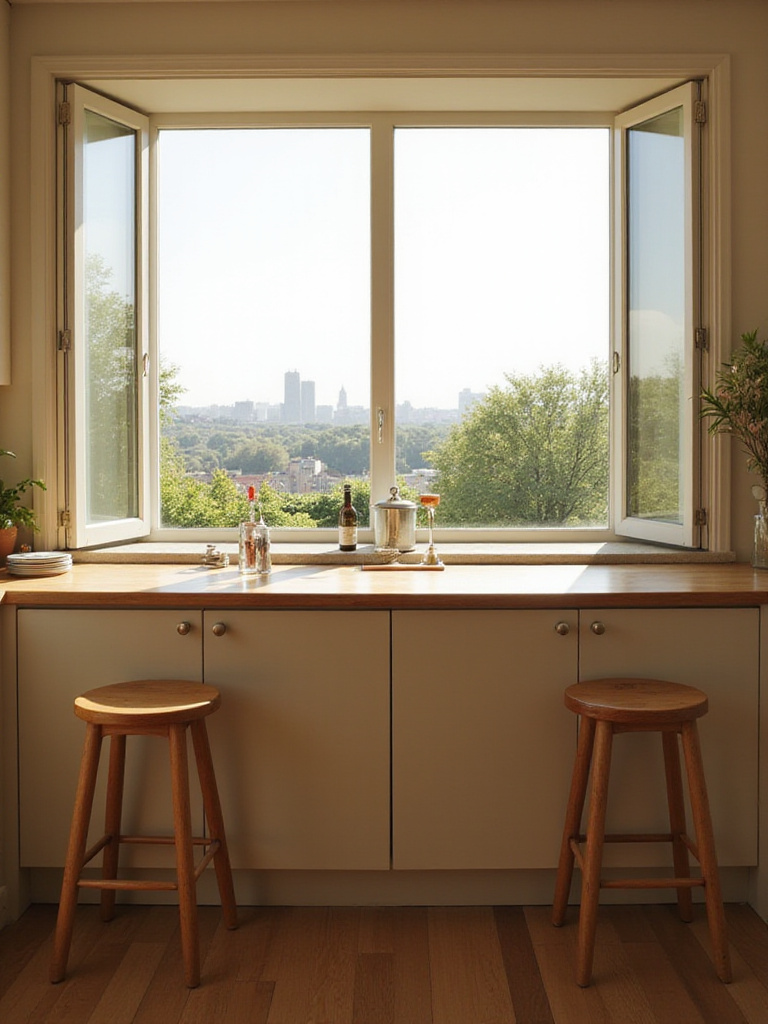
North-facing windows provide consistent, glare-free light ideal for detailed work, while south-facing ones offer dramatic light shifts. Position screens perpendicular to windows to reduce glare while maintaining the outdoor connection.
14. Industrial Pipe Supports: Raw and Customizable
Using exposed industrial pipe fittings as bar supports introduces a rugged, honest aesthetic that contrasts beautifully with refined surfaces like wood or stone. This approach celebrates structural transparency and craftsmanship.
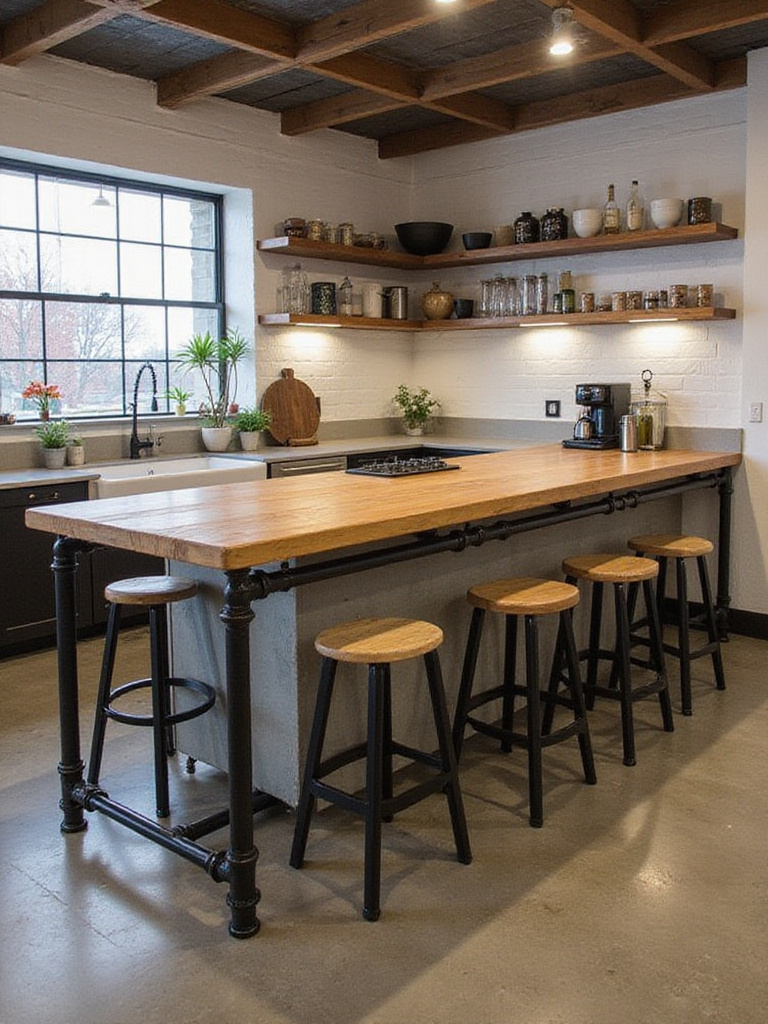
Pipe fittings offer endless customization, allowing DIY enthusiasts to craft unique supports tailored to their bar’s size and style. This industrial look pairs well with tech elements, embracing the mechanical and digital facets of modern living.
15. Textured Tile Fronts: Adding Depth and Interest
The vertical face of a kitchen bar is a perfect canvas for decorative tile, which can introduce pattern, color, and texture without the wear concerns of horizontal surfaces.
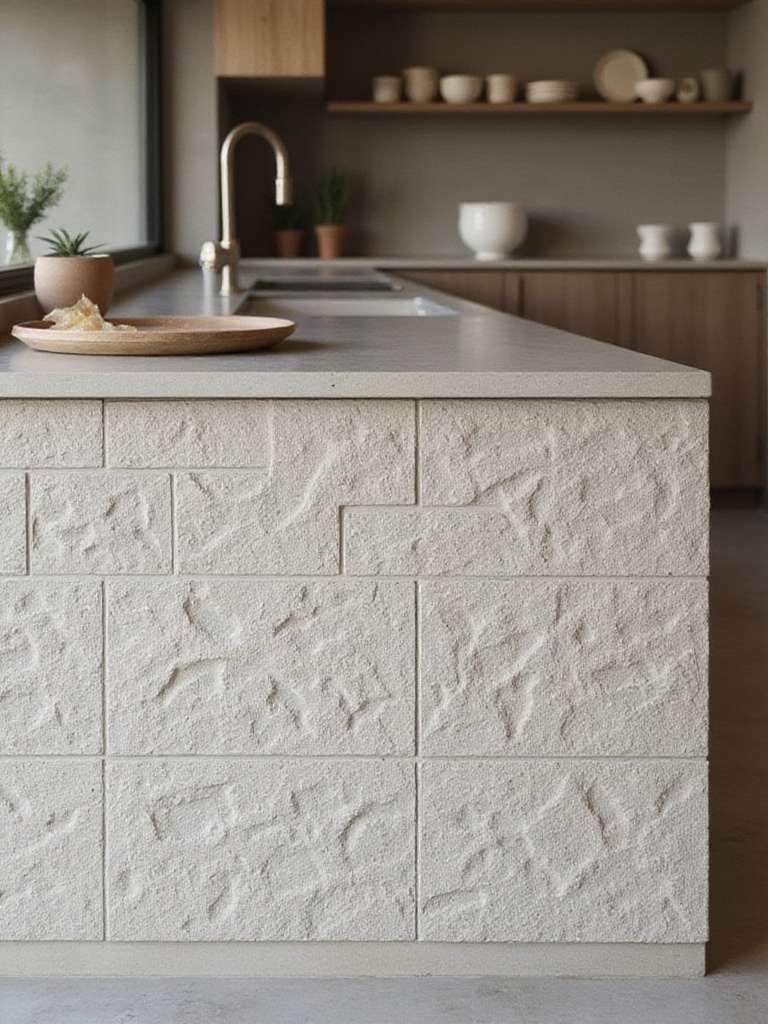
Glossy tiles reflect light and visually expand space, while matte or 3D tiles create subtle shadow play. Metallic tiles can echo the finishes of your tech devices, creating a cohesive blend of traditional and modern elements.
16. Power-Integrated Bars: Charging Made Easy
With the rise of digital devices, integrating power outlets into your kitchen bar is essential. Options include pop-up outlets, edge-mounted strips, or built-in USB ports and wireless charging pads.
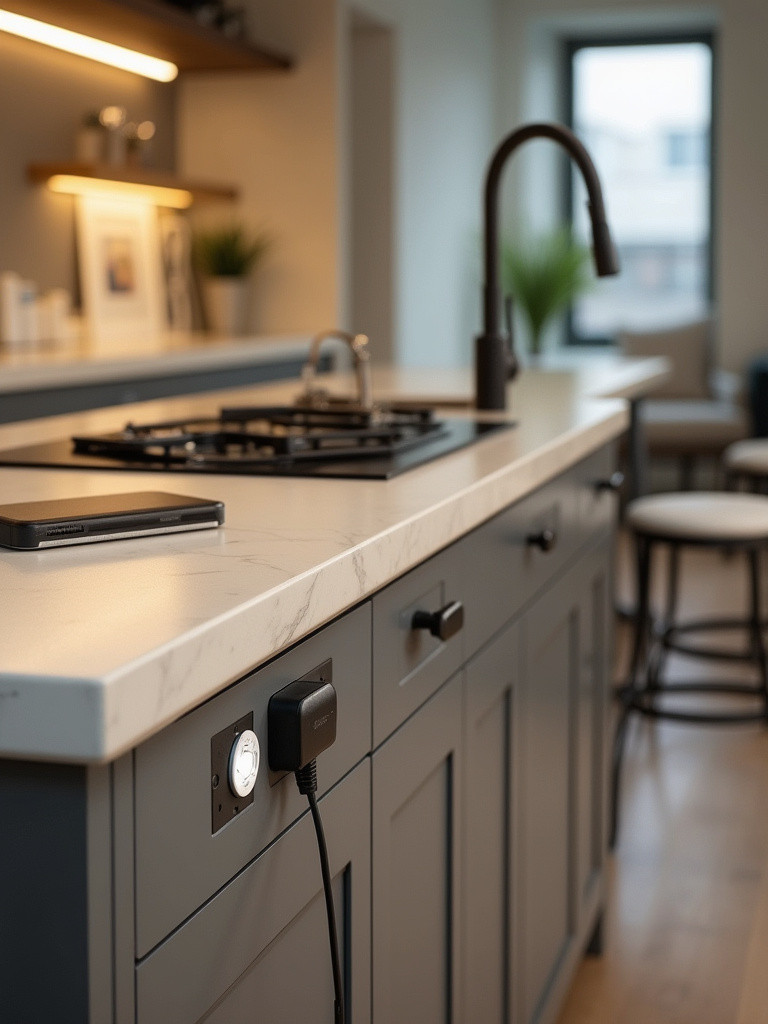
Plan outlet placement based on usage-central for laptops, edges for phones-to keep cables organized and maintain a clean look. This thoughtful integration supports a seamless blend of analog and digital activities.
17. L-Shaped Bars: Expanding Social and Functional Space
An L-shaped bar maximizes seating and surface area, encouraging face-to-face interaction and defining a cozy kitchen zone without walls.
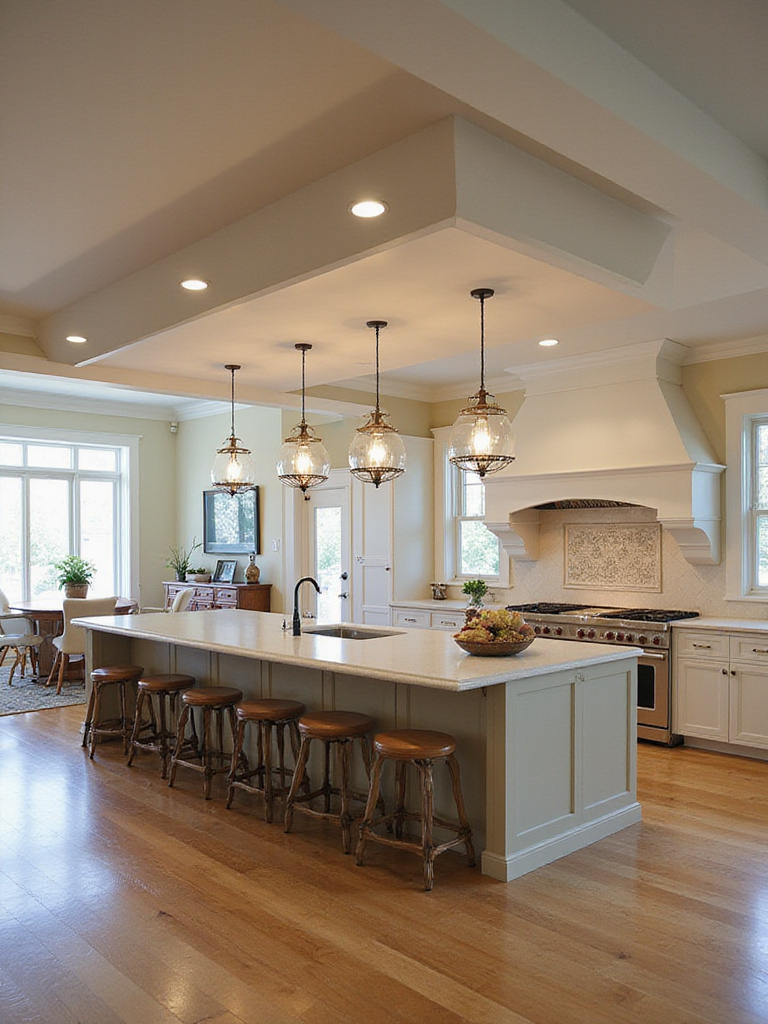
This layout suits homes where the kitchen is a social nucleus, supporting simultaneous activities like homework, cooking, and casual conversation. Mixing surface materials can subtly delineate zones, or a uniform finish can unify the space.
18. U-Shaped Bars: Immersive Social Experience
For those who entertain often, a U-shaped bar envelops guests and hosts alike, fostering intimate interaction reminiscent of a chef’s counter or sushi bar.
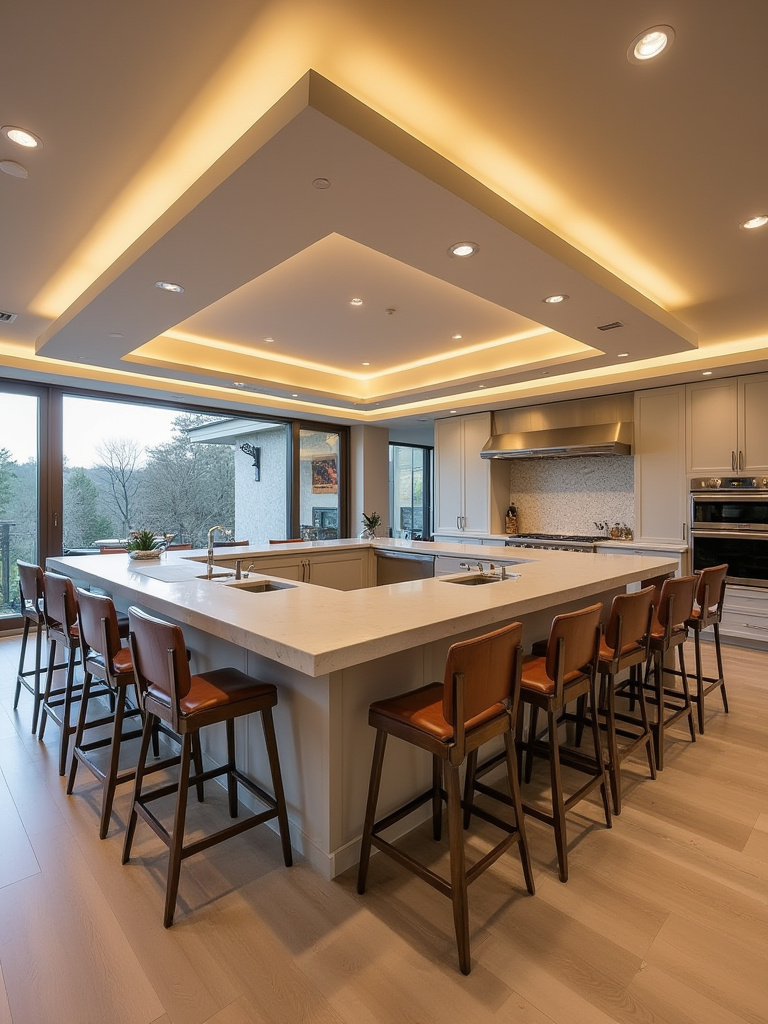
This design creates distinct zones for work, dining, and serving, ideal for spacious kitchens. Centralized power outlets and corner charging stations enhance tech accessibility without disrupting flow.
19. Pub-Height Bars: Elevating Social Interaction
Standing at 40-42″, pub-height bars distinguish social areas from standard counters, encouraging casual standing conversations and quick meals.
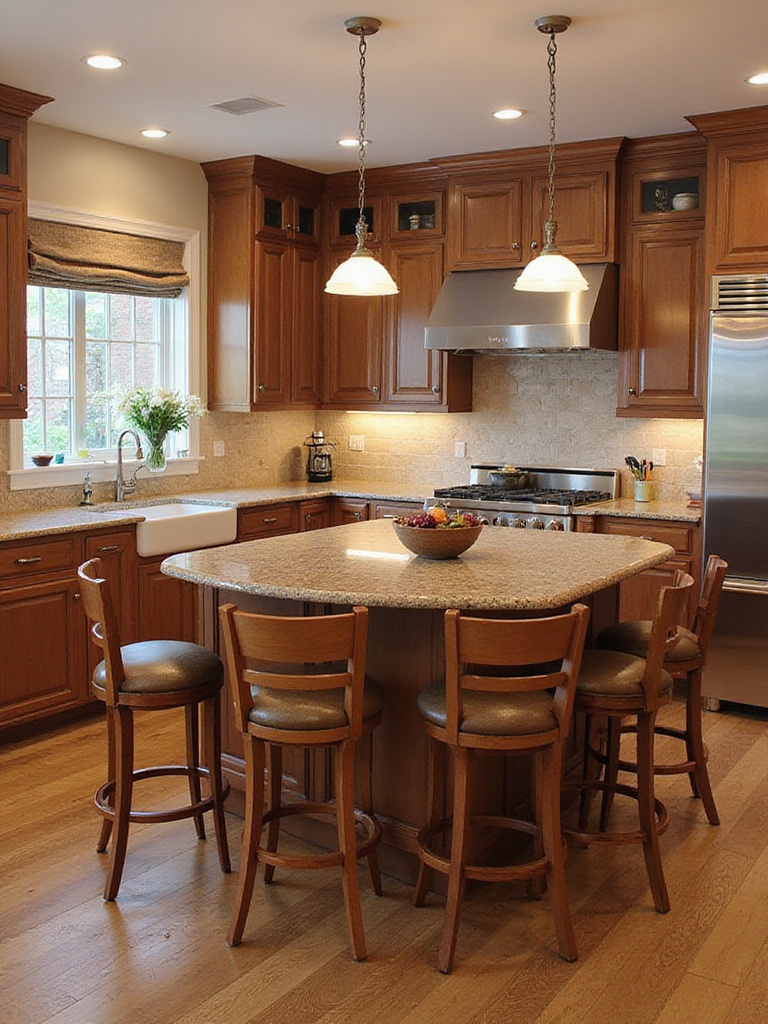
This height also helps conceal kitchen clutter from adjoining living spaces. Choose stools with footrests and backs for comfort during longer gatherings. This style nods to traditional public bars while fitting residential needs.
20. Counter-Height Bars: Seamless and Accessible
At 36″ tall, counter-height bars extend the kitchen workspace without creating a separate zone. They pair well with standard stools, offering comfort and accessibility for all ages.
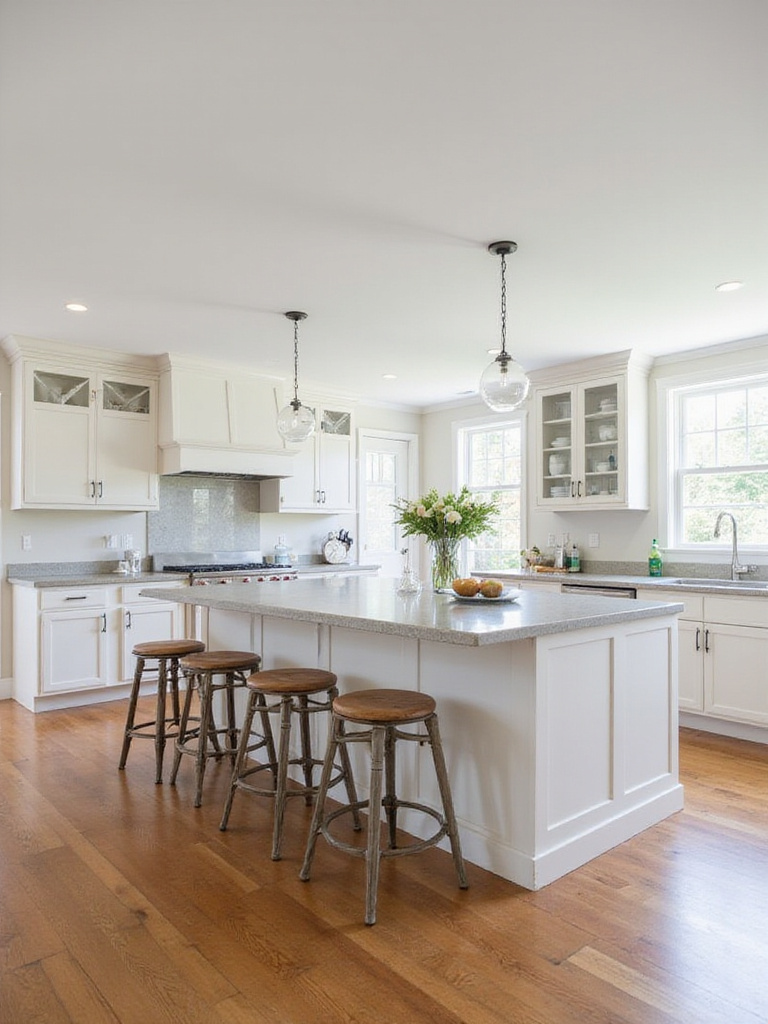
This design supports multitasking-food prep, dining, and work-while maintaining open sightlines and a spacious feel.
21. Footrails: Small Details, Big Comfort
Adding a footrail enhances seating comfort, especially at taller bars. Positioned 6-9″ above the floor, it provides a resting place for feet, reducing strain.
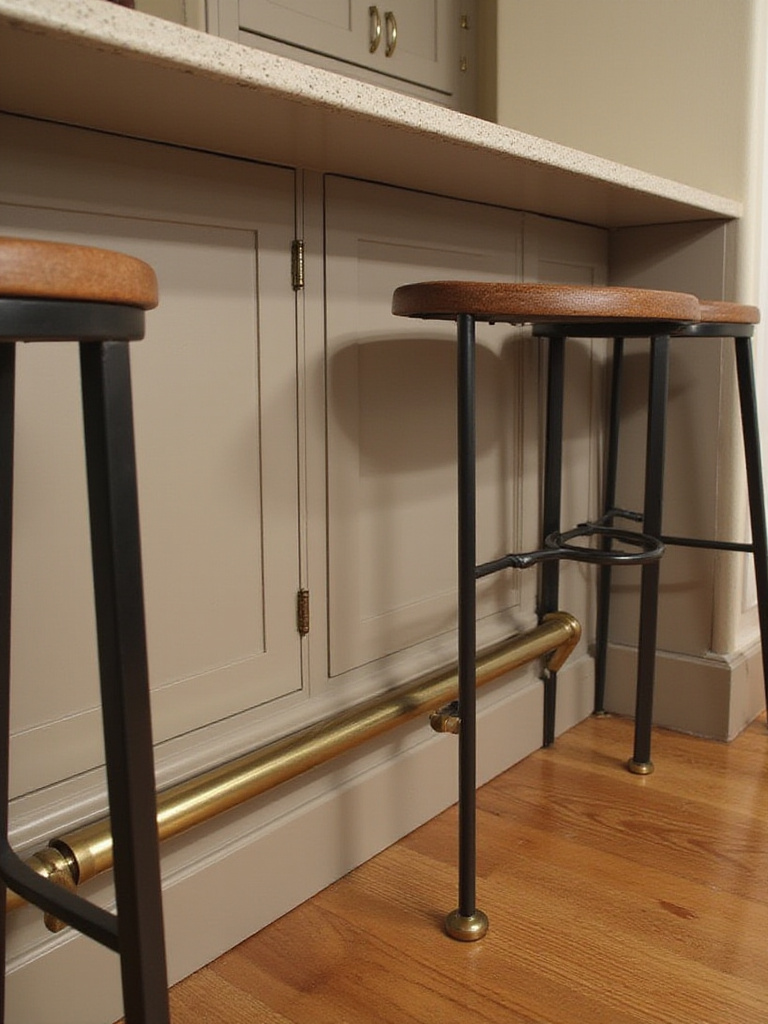
Materials like brass, stainless steel, or powder-coated steel offer durability and style. Some designs incorporate LED lighting for ambiance and safety, blending tradition with modern flair.
22. Integrated Lighting: Setting the Mood and Function
Lighting transforms kitchen bars from purely functional to atmospheric. Options include pendant lamps, under-counter LEDs, or embedded lights within translucent surfaces.
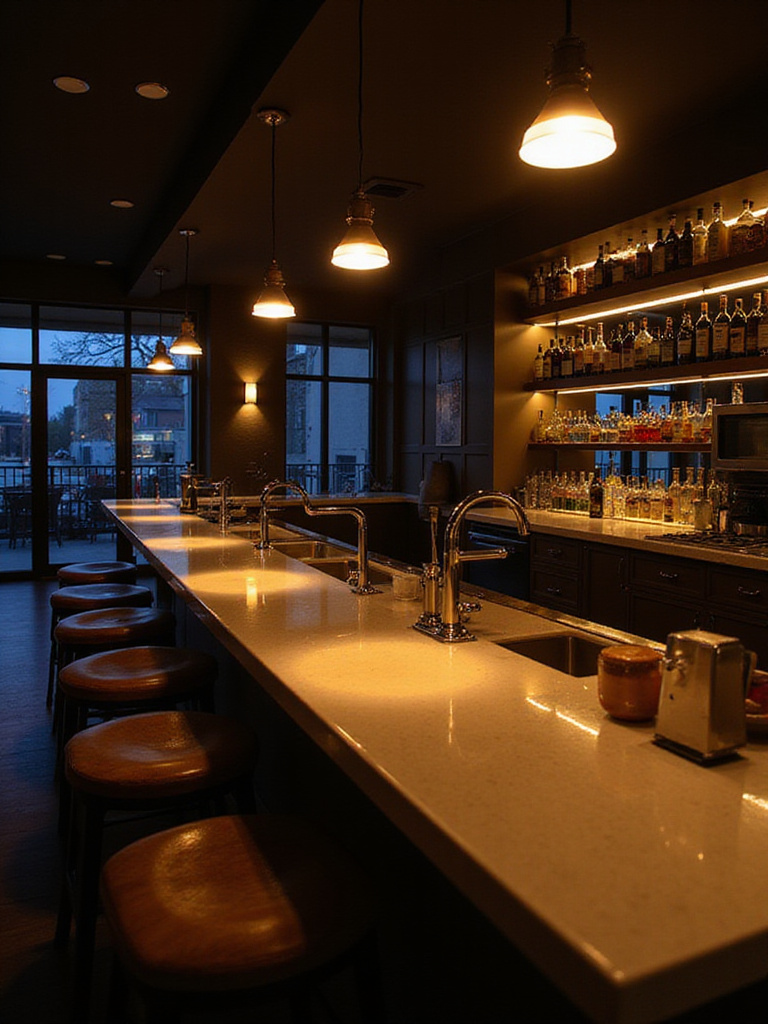
Dimmable and color-temperature adjustable systems allow you to tailor lighting for tasks or relaxation. Cooler tones (4000K+) boost focus, while warmer hues (2700-3000K) foster cozy social settings. Smart lighting can automate these shifts, enhancing daily rhythms.
Final Thoughts
The most effective kitchen bars blend intentional design with versatile functionality, supporting both cherished traditions and modern digital lifestyles. Whether you choose a simple countertop extension or a sophisticated multi-level setup, success hinges on understanding your space’s unique needs and how you intend to use it.
By thoughtfully combining materials, heights, lighting, and power access, you create a kitchen bar that feels natural and purposeful. The best bars become seamless extensions of your daily life-where technology and human connection coexist effortlessly, enriching your home’s heart.
Explore kitchen bar accessories to complement your design and enhance functionality.
For stylish and comfortable seating, check out bar stools that fit your aesthetic and comfort needs.
Upgrade your lighting with LED kitchen lighting options that combine efficiency and ambiance.
Discover versatile mobile bar carts for flexible kitchen setups.

